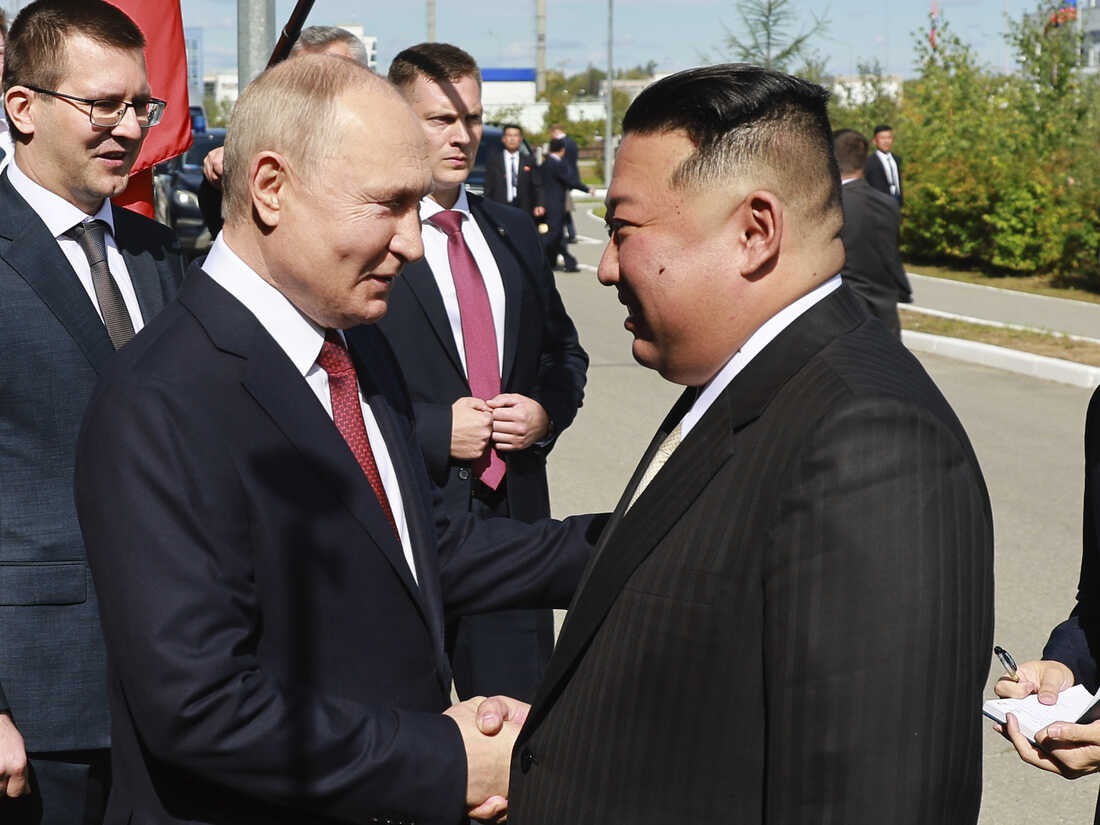North Korean leader Kim Jong Un, on Wednesday, June 5, 2025, pledged his country’s full and unconditional support for Russia’s war in Ukraine, according to a report published by North Korea’s state-run media.
The declaration marks a deepening alliance between Pyongyang and Moscow, as both countries expand their strategic and military cooperation.
During a meeting in Pyongyang on Wednesday with Sergei Shoigu, Secretary of Russia’s Security Council, Kim emphasized North Korea’s unwavering support for Russia’s foreign policy.
This is particularly about the ongoing conflict in Ukraine.
The official Korean Central News Agency (KCNA) quoted Kim as saying that:
North Korea would “unconditionally support the stand of Russia and its foreign policies in all the crucial international political issues including the Ukrainian issue.”
The two sides reportedly reached a mutual understanding on Ukraine and other global matters, though specific topics beyond Ukraine were not disclosed by KCNA.
This latest meeting follows the official confirmation in April 2025 of North Korean troop deployment to Russia.
That announcement marked the first public acknowledgment that North Korean soldiers were directly involved in an overseas conflict since the Korean War of 1950–53.
Both North Korea and Russia stated that their troops were jointly engaged in repelling Ukrainian forces from Russia’s western border area in the Kursk region.
At the time, Russian President Vladimir Putin publicly expressed gratitude for North Korea’s participation.
He also assured that the sacrifices made by North Korean forces would be remembered.
Citing a press release from the Russian Security Council, Russia’s state-owned Tass news agency reported that Shoigu and Kim also discussed plans for reconstructing the Kursk region.
It also reported that he agreed on ways to formally recognize and commemorate the contributions of North Korean troops.
These efforts are part of broader plans to honor the role Pyongyang has played in supporting Russia’s war objectives.
In April, Russia claimed full control over the Kursk region, asserting that Ukrainian forces had been expelled.
However, Ukraine disputes this assertion.
On Saturday, Ukrainian military chief Oleksandr Syrskyi insisted that Ukrainian forces still held positions inside the Kursk region.
This position directly challenges Moscow’s claims of territorial victory.
Shoigu’s latest visit to North Korea follows a previous meeting with Kim in March.
These repeated high-level visits underscore the rapidly evolving military and diplomatic ties between the two nations.
Neither Pyongyang nor Moscow has publicly disclosed the number of North Korean soldiers currently deployed to Russia.
However, intelligence agencies from the United States, South Korea, and Ukraine previously reported that North Korea sent between 10,000 and 12,000 troops to Russia in the fall of 2024.
This marked Pyongyang’s most significant foreign military deployment in over seven decades.
More recently, South Korean authorities said North Korea dispatched an additional 3,000 soldiers to Russia earlier in 2025, reinforcing its military presence.
Beyond troop deployments, North Korea is also believed to be supplying Russia with large quantities of conventional weapons to support its war effort.
These transfers include artillery, small arms, and possibly other military equipment.
In return, Western intelligence officials believe that Russia is compensating North Korea with both military and economic aid.
There are growing concerns among South Korea, the U.S., and their allies that Russia may be providing advanced technology to North Korea.
Such transfers could enhance Pyongyang’s nuclear weapons capabilities.
This is especially those designed to target regional rivals such as South Korea, Japan, and the United States.
The potential for Russia to share sensitive technology has raised alarms in diplomatic and defense circles.
It could enable North Korea to make significant strides in areas like missile accuracy, warhead miniaturization, or submarine-launched capabilities, all of which would drastically increase the threat posed by its already advanced weapons programs.
As tensions rise and the alliance between Pyongyang and Moscow strengthens, analysts say the partnership reflects broader geopolitical shifts.
Both nations, increasingly isolated from the West, appear to be leveraging one another.
This is supposedly in a bid to counterbalance growing pressure from NATO, the U.S., and their global allies.
This growing cooperation has fuelled concern that the Ukraine conflict may be broadening into a more complex international confrontation with deeper strategic implications.







